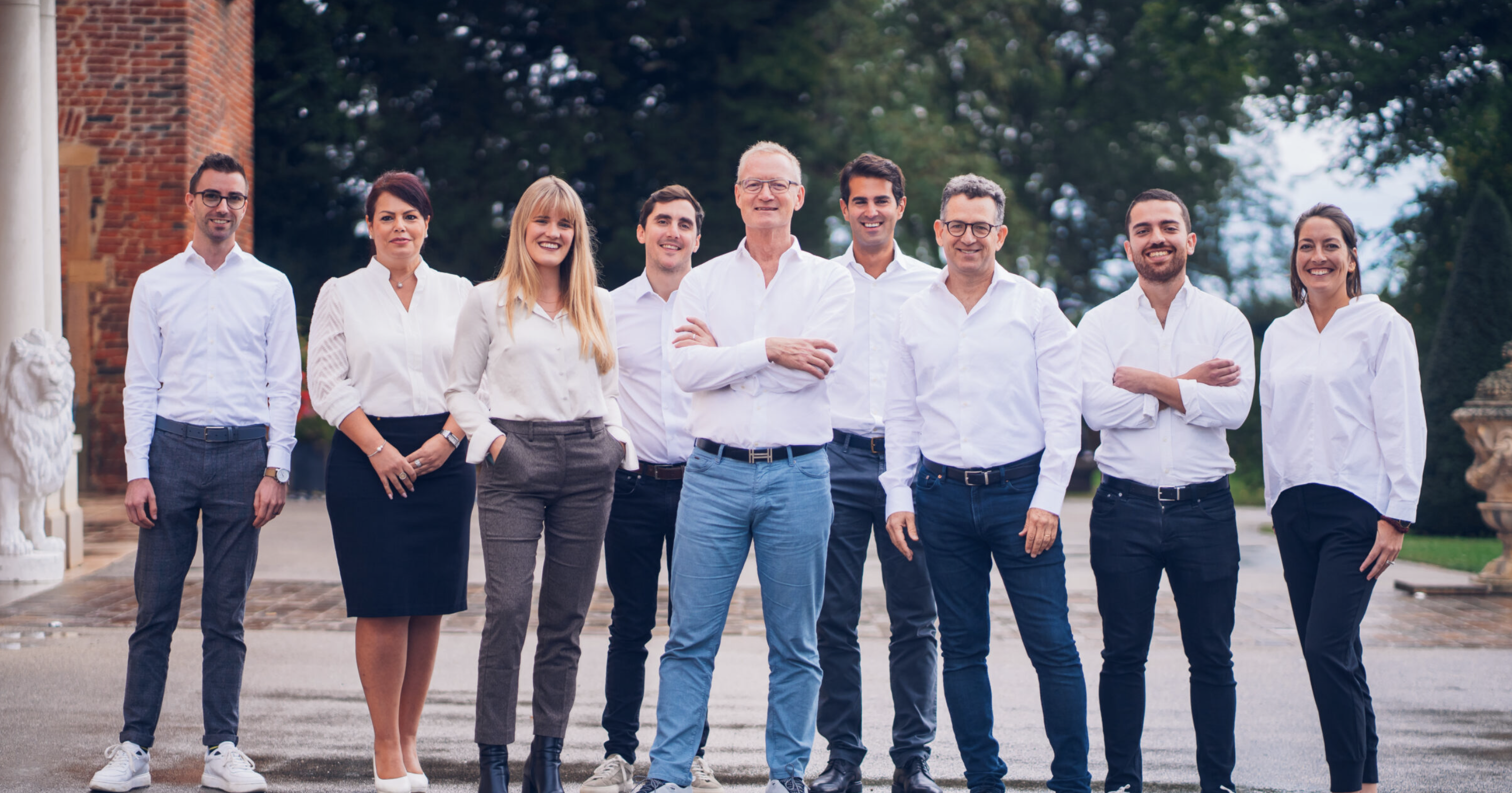TGIF, Agents of Impact!
We hold these truths to be self-evident. The convergence of COVID and the movement for racial justice has made clear that the future of finance is sustainability, inclusivity and equality. And ramped up impatience for a faster and deeper shift of capital, not least by impact investors themselves (see Nos. 1, 2 and 6, below, as well as Laurie Spengler’s cri de cœur last month). The disruption has blown away timeworn excuses for inaction: “market rates of return” has lost meaning, if it ever had any; “fiduciary duty” now incontrovertibly requires due diligence on systemic risks; the whole system’s license to operate now rests on its environmental, social and governance, or ESG, performance. The opportunities for impact are so immense (Nos. 3 and 4), and the alternatives so dire, that long-term and values-aligned investors must build out financial systems that put people and planet at the center (No. 5) whether or not legacy finance gets on board (see Agents of Impact, below). When in the course of human events, it becomes necessary for one financial system to dissolve the bands which have connected it with another, it’s up to us to declare independence.
We’re taking a holiday weekend break today from our weekly podcast (you can catch up on earlier episodes here) and on Monday from the daily Brief. We’ll be back in your inbox on Tuesday, July 7.
– David Bank, editor
The Week’s Big 6
1. Getting assets off the sidelines (video). In this all-hands-on-deck moment, new and longtime impact investors are taking on systemic challenges such as racism, climate change and COVID. On ImpactAlpha‘s Agents of Impact Call No. 20 last week, Alabama Power Foundation’s Myla Calhoun, Ford Foundation’s Margot Brandenburg, Chris Earthman of the Aragona Family Office and other agents shared how they are stepping up. Key takeaway: “Small bites – $5,000, $10,000, $50,000 – can do a ton,” said Earthman. Catch the replay.
- Check it out. Rockefeller Philanthropy Advisors sponsored The Call to launch the new “Impact Investing Handbook: An Implementation Guide for Practitioners.” Find excerpts on the “Why” and the “Who” of impact investing on ImpactAlpha.
2. Opportunity Zone reckoning. When the 2017 tax law created a capital gains tax cut to spur investments in low-income areas, it was possible to hope that Opportunity Zones would become a major new source of capital for community-based businesses. The data is in, and it shows that few Opportunity Zone dollars are flowing to equitable real estate development or into small businesses creating local wealth and jobs. But as Brett Theodos of the Urban Institute has found, “there are fundamental and structural issues that make it hard to use for impact.” Dig in.
- Exception to the rule. Arctaris Impact Investors committed $40 million to mixed-use Opportunity Zone projects to revitalize the downtown corridor in Erie, Pa.
3. 10x tech for 10x impact in 10 years. Technological disruptions could drive down the cost of basic needs to $250/month by 2030, using one-tenth the natural resources and reducing waste by 10x or even 100x, finds a new report from RethinkX. That could make access to food, energy, transportation, information and shelter fundamental human rights. Needed: a new social, economic and cultural Organizing System. Amped impact.
4. Pricing carbon in order to capture it. Carbon capture technology could take 500 million tons of CO2 out of the atmosphere per year by 2030, a new report from McKinsey finds. That’s a 10x increase from today – but nowhere near what’s needed. Carbon pricing would make it pay to capture, store and reuse CO2, and drive the tech down the cost curve. Clean reading.
- A carbon tax on meat. Zoonotic diseases, such as COVID-19, put factory farming in a new light. In a post-COVID world, governments may tax animal-grown meat rather than subsidize it. Here’s more.
- Writedown watch. Citing lower demand and long-term decarbonization efforts, Shell wrote down $22 billion in fossil fuel assets (see, “Write-downs of stranded fossil fuel assets are here – and getting bigger”). Fracking pioneer Chesapeake Energy filed for bankruptcy.
5. Putting people at the center of finance. Too often “conversations shift towards risk, subordination, benchmarks and pricing,” and lose sight of impact goals, argue Sandhya Nakhasi and Ryan Glasgo of Community Credit Lab, a Seattle-based nonprofit lender, in a guest post. Impact finance needs to be designed first for people and communities, and second for investors. Hear them out.
6. Unlocking returns on inclusion. It’s time for impact investors to lead “in breaking through the systemic barriers that impede capital from flowing to Black leaders and other leaders of color,” write Bridgespan Group’s Michael Etzel and Willie Thompson in a guest on ImpactAlpha. To unlock returns on inclusion, investors need to track the racial composition of the founders in their portfolios and set targets for change. Go deeper.
- Case in point. LeBron James signals the opportunity for “empowerment” media with a $100 million raise for SpringHill Co. His new production company aims to be “part Disney storytelling power, part Nike coolness, and part Patagonia social impact” for diverse creators and consumers. Binge-worthy.
The Week’s Agents of Impact
Mobilizers of corporate cash for community impact. When Netflix committed this week to deposit $100 million with Black-owned lenders, businesses and institutions, executives Aaron Mitchell (left, above) and Shannon Alwyn noted that a shift of just 1% of the cash held by companies in the S&P 500 could add $20 billion in deposits to Black-owned financial institutions, massively increasing their lending power. Indeed, there’s more than $700 billion in the cash reserves of just 10 companies, including tech giants Apple, Microsoft, Alphabet and Amazon (see, “Beyond Buybacks: 10 ways to put corporate cash to work”). Google, part of Alphabet, has carved out $120 million from its balance sheet to make low-interest loans to community development financial institutions, or CDFIs, and another $45 million in loans (along with $5 million in grants) for Black-owned businesses. “Working through CDFIs is really vital to bridging the gap” for access to capital, especially in communities of color, says Ruth Porat (right, below), chief financial officer of both Google and Alphabet. For beginning to mobilize corporate cash for community impact, Mitchell, Alwyn and Porat – and their CDFI partners – are this week’s Agents of Impact.
It’s not surprising that both Google and Netflix found their way to CDFIs, which can be credit unions, depository banks or loan funds. Corporations operate in geographies that face racial wealth and educational achievement gaps, crumbling infrastructure, health inequities, and a shortage of small-business financing. Place-based investing through CDFIs can start to address local challenges. What is surprising is that more corporations have not found ways to put their cash to work for community impact. Netflix’s deposits “substitute for the low-cost checking and savings deposits that traditional banks access in abundance from more affluent customers and communities,” says Bill Bynum of Hope Credit Union, a Black-owned CDFI based in Jackson, Miss., that received $10 million in 0.1%-interest “transformational deposits.” Many CDFIs need more than deposits, though. Equity investments in CDFIs themselves would boost their capital reserves and multiply lending capacity. Vista Capital Partners’ Robert Smith has called for the 10 largest U.S. banks to direct just 2% of their net income in the last 10 years to drive $20 billion in “Tier 1” capital for CDFIs and minority depository institutions. “CDFIs are equity-starved,” says Patrick Davis of Community Reinvestment Fund, a CDFI that services other CDFIs (see, “10x’ing community capital”). “If we could wake corporates and others up to this, it would have a huge impact on the industry and those we serve and create an enormous amount of leverage.” – David Bank
- Share this Agents of Impact story and like it on Instagram.
- ICYMI. “Netflix to move $100 million in cash deposits to lenders in Black communities.”
The Week’s Dealflow
Returns on inclusion. Reconnect secures $3.7 million to help the recently incarcerated navigate parole… APDS secures $5 million to offer education in prisons… RSF Social Finance extends loan guarantee to Communities Unlimited… Kiva Capital scores grant to design women’s impact fund… Lightship Capital closes $22 million for under-represented Midwestern founders.
COVID relief. CDFIs outperform big banks on PPP lending… Omidyar Network India backs 67 projects with $1.5 million in COVID relief… Philadelphia releases results of its COVID-19 Small Business Relief effort… LISC and Kaiser Permanente partner on $60 million COVID recovery fund.
“Alt”-tech. Lactips secures €13 million for alt-plastic… Canadian government blends $100 million for Merit Functional Foods’ plant-based protein… Mexican alt-dairy venture Heartbest scores $2 million… Gates Foundation backs Enko Chem’s eco-pesticides for Africa.
Fund news. Material Impact Fund closes $200 million for second ‘deep tech’ fund… Hamilton Lane closes $95 million impact fund… UBS raises $400 million equity fund to capture ‘impact delta’… Lazard launches U.S. sustainable equity portfolio.
Frontier finance. Societe Generale and CDC launch $100 million facility to spur lending by West African banks… Ingressive Capital fund reaches $10 million to invest in African tech.
Low-carbon economy. TPG Growth’s Rise Fund launches renewable infrastructure investing group.
The Week’s Talent
Bhairvee Shavdia is promoted to principal at HCAP Partners… Victoria Carrion, ex- of Glovista Investments, is named director of membership and partnership at Catholic Impact Investing Collaborative… Former U.K. MP Nick Hurd joins i(x) investments as a senior advisor focused on the climate emergency.
The Week’s Jobs
Echoing Green is hiring a director of development in New York… Wellington Management seeks an ESG analyst of global technology in London… Social enterprise Beam is looking for a director of business development in London… Candide Group is hiring a managing director in Oakland, Calif… Sarona Asset Management is searching for an investment committee member for its Emerging Impact Investing Fund… Boston-based New Profit is recruiting for multiple positions.
Sunwealth is searching for a capital markets director in Cambridge, Mass… TripleJump has an opening for a project manager in Amsterdam… Euronext seeks a head of ESG in Brussels… 60 Decibels is hiring researchers… The Kellogg Foundation seeks a program officer in Albuquerque… Equal Innovation is looking for a scout for mission-driven startups and COVID research in Boston.
Thank you for reading.
–July 3, 2020











